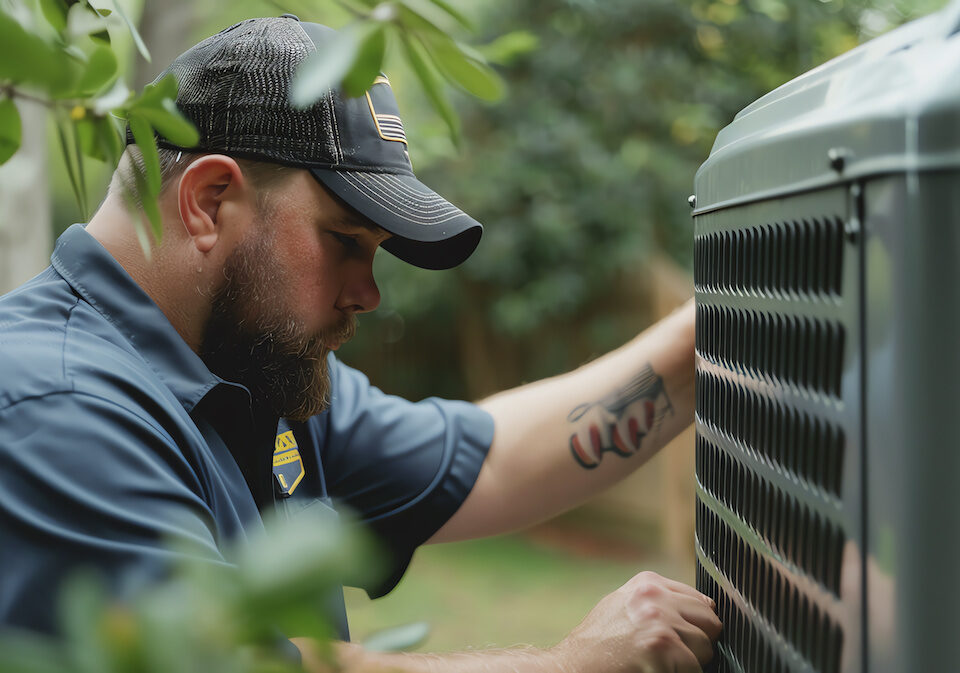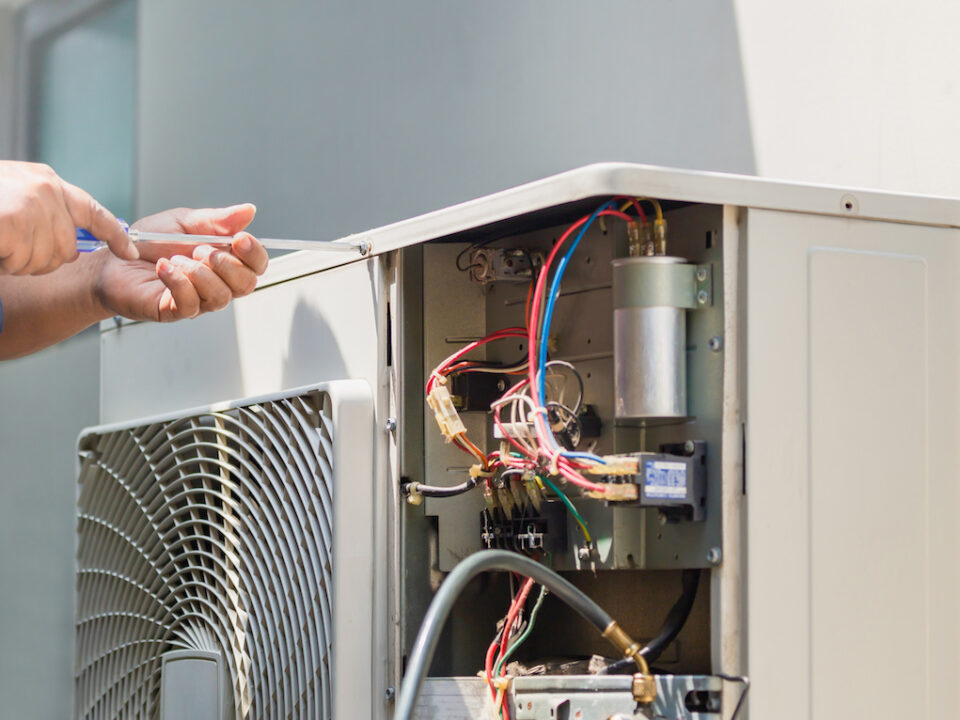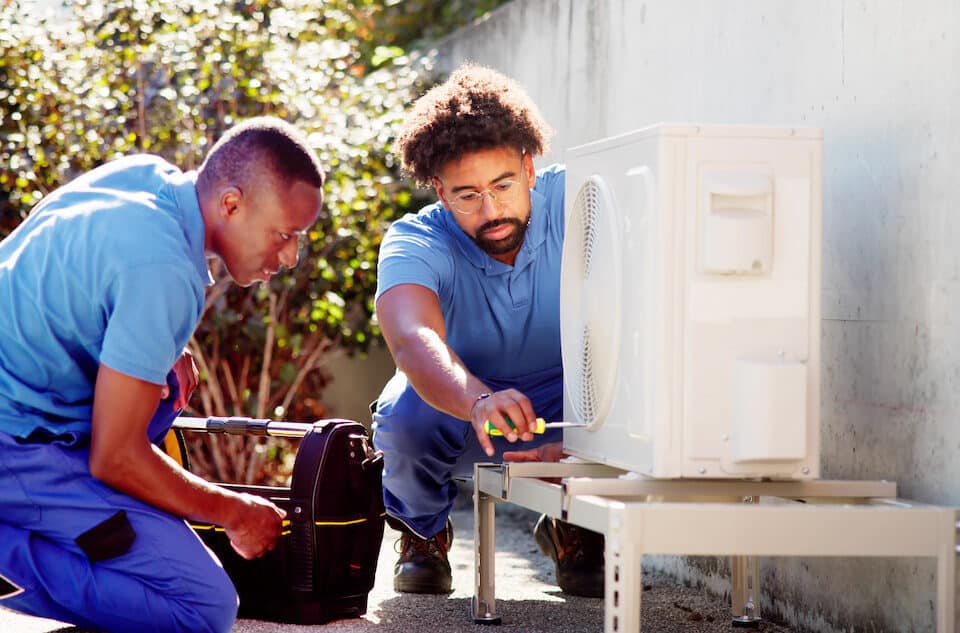How to Choose the Right Air Conditioning System for Your Home
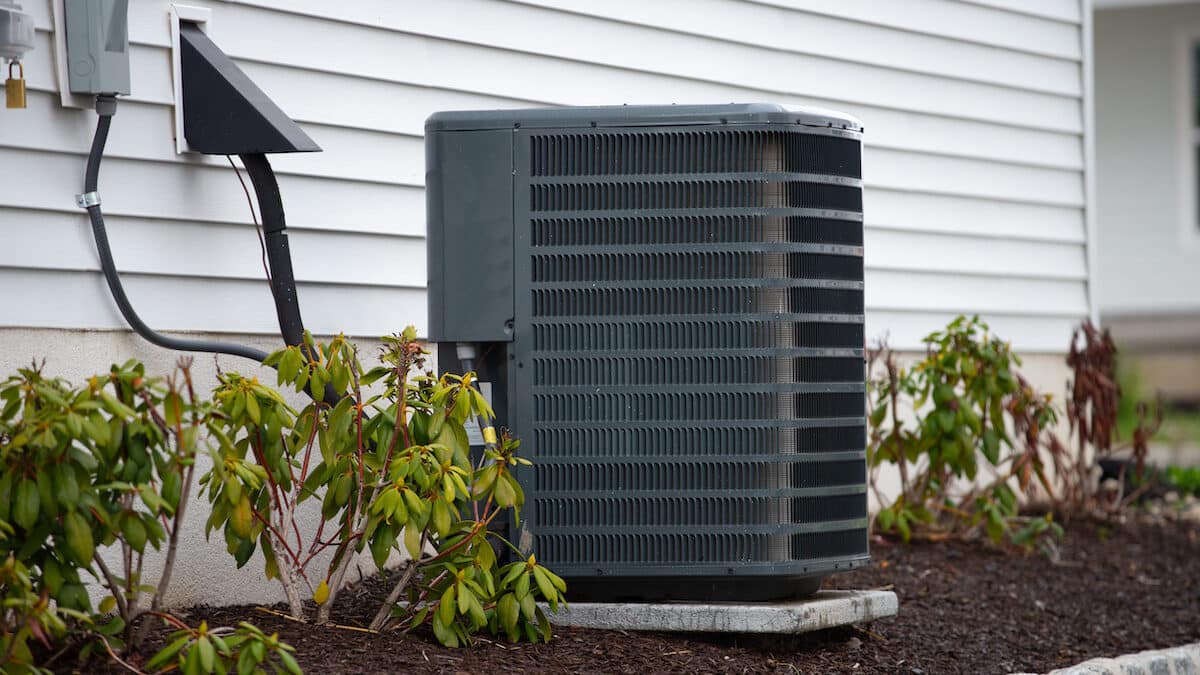
If you’re in the middle of searching for an air conditioning system, you’ve come to the right place!
Selecting the right air conditioning (AC) system for your home is crucial for ensuring comfort, energy efficiency, and cost savings. With numerous options available in the market, it can be overwhelming to make the right choice, but our experienced team at Trust Heating and Air is here to help!
In this article, we will guide you through the process of choosing the most suitable AC system for your home, considering important factors like:
- Cooling needs
- System types
- Energy efficiency
- Additional features
- Sizing and installation considerations
- Budget
- Maintenance requirements
Let’s dive in!
Understanding Your Cooling Needs
Before selecting an air conditioning system, it’s important to assess your cooling needs based on several factors.
By considering the climate in your region, the size and layout of your home, and the specific cooling requirements for each room, you can determine the capacity and type of AC system that will provide optimal comfort.
1. Assessing the climate in your region
The climate in your region plays a significant role in determining your cooling needs. If you live in a hot and humid climate, you will likely require a more powerful AC system compared to someone living in a milder climate.
Consider the average summer temperatures, humidity levels, and the duration of the cooling season in your area before selecting a system.
2. Evaluating the size and layout of your home
The size and layout of your home directly impact the cooling requirements. A larger home will generally require a higher capacity AC system to effectively cool all the rooms.
Consider the square footage of your home and whether it has multiple floors, open-concept areas, or rooms with high ceilings. These factors can affect the distribution of cool air and influence the size of the system you need.
3. Determining the cooling requirements for each room
Not all rooms in your home may require the same level of cooling. For example, rooms with large windows or facing direct sunlight may need extra cooling compared to interior rooms.
Additionally, rooms with higher occupancy or heat-generating appliances, such as kitchens or home offices, may require additional cooling capacity.
Evaluate the specific cooling needs for each room to determine the zoning or capacity requirements for your AC system.
By carefully assessing these factors, you can ensure that the AC system you choose is appropriately sized and capable of meeting your cooling needs. Oversized or undersized systems can result in inefficient operation, discomfort, and increased energy consumption.
Consulting with a professional HVAC contractor or using online sizing calculators can help you accurately determine the capacity required for your specific home layout and cooling needs.
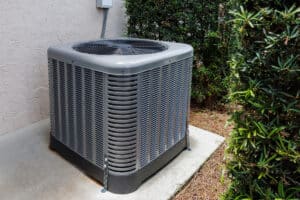
Types of Air Conditioning Systems
There are several different types of air conditioning systems. The system you choose will be based on your cooling needs along with the other factors we discuss later in the blog.
Central Air Conditioning
Central air conditioning is a popular choice for homes with ductwork. This system works by cooling air at a central unit and then distributing it through the ducts to different rooms.
Some of the perks of central AC include:
- Consistent cooling throughout the house
- Quiet operation
- Improved indoor air quality if a quality air filter is used
However, there are a couple of downsides to this system, including:
- Complex and expensive installation
- The requirement for ductwork
Ductless Mini-Split Systems
Ductless mini-split systems consist of an outdoor unit connected to one or more indoor units, which allows for independent temperature control in different zones. They are an excellent option for homes without existing ductwork.
Some of the advantages of mini-split systems include:
- Flexibility in zoning
- Energy efficiency
- Ease of installation
However, there is one major drawback to using this system: they may have higher upfront costs compared to other options.
Window and Portable AC Units
Window and portable AC units are suitable for cooling individual rooms or smaller spaces. These units are installed in a window or a dedicated hole in the wall, while portable units can be moved around.
A few perks to having window and portable AC units include:
- Affordability
- Ease to install
- Convenience for renters or small spaces
However, there are a few disadvantages to using this type of system, including:
- Typically noisier than other options
- Less energy efficient
- Obstruct natural light
Hybrid Systems
Hybrid systems combine a traditional furnace with an electric heat pump. They offer both heating and cooling capabilities, making them versatile for year-round comfort.
One of the primary benefits of hybrid systems is that they are energy-efficient, especially in moderate climates.
However, they may have higher upfront costs compared to other systems.
Geothermal Systems
Geothermal systems utilize the stable temperature of the ground to heat and cool the home.
Two major benefits of geothermal systems are that they are highly efficient and environmentally friendly, which results in long-term energy savings and can qualify for tax incentives or rebates.
However, geothermal systems require a significant upfront investment.
Energy Efficiency and SEER Ratings
Energy efficiency is a crucial factor to consider when choosing an AC system. Higher efficiency means lower energy consumption and reduced utility bills.
The Seasonal Energy Efficiency Ratio (SEER) is a rating that measures the cooling output of an AC system relative to its energy consumption over a typical cooling season.
Choosing a system with a high SEER rating ensures greater energy efficiency and long-term cost savings.
Additional Features to Consider
Apart from cooling, modern AC systems offer various additional features that can enhance your comfort and indoor air quality. Consider features such as:
- Programmable thermostats for energy savings and convenient temperature control
- Air purifiers for improved air quality
- Dehumidifiers for reducing excess moisture
- Smart home compatibility for remote control and automation
- Noise levels for a quieter living environment
Sizing and Installation Considerations
Proper sizing and installation are vital for the optimal performance of your AC system. An undersized unit may struggle to cool your home efficiently, while an oversized unit may cycle on and off frequently, leading to energy waste and discomfort. Selecting the right size system will help ensure comfort in your home.
It’s recommended to consult with a professional HVAC contractor who can assess your home’s cooling needs, perform a load calculation, and recommend the appropriate system size. Factors such as insulation, windows, and ceiling height will be taken into account during this process to ensure accurate sizing. While some of this could be done on your own, a professional will be able to offer the best advice.
During installation, proper placement of the indoor and outdoor units is essential. The contractor will determine the best locations for optimal airflow and efficiency. They will also ensure that the ductwork, if applicable, is properly sealed and insulated to minimize air leaks.
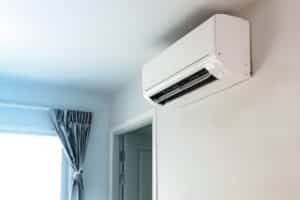
Budget Considerations
When considering an AC system, it’s important to evaluate your budget. Different types of AC systems vary in upfront costs, operating costs, and maintenance expenses.
Central air conditioning systems and geothermal systems tend to have higher initial costs but can provide long-term energy savings.
Window and portable units are generally more affordable but may have higher energy consumption.
Consider the long-term cost-effectiveness of the system, including potential energy savings and maintenance requirements, to make an informed decision based on your budget.
Maintenance and Service Requirements
Regular maintenance is crucial for the efficient and reliable operation of your AC system. It’s recommended to schedule annual maintenance with a professional HVAC technician. This includes:
- Cleaning or replacing air filters
- Checking refrigerant levels
- Inspecting and cleaning coils
- Ensuring proper airflow
Routine maintenance can improve energy efficiency, extend the lifespan of the system, and prevent potential breakdowns. At Trust Heating and Air, we offer a residential Preventative Maintenance Program to help with this!
Additionally, it’s important to be aware of the manufacturer’s warranty and any service agreements offered by the HVAC contractor. Understand the terms and conditions, as well as any recommended service intervals, to keep the warranty valid and ensure prompt repairs if needed.
Choose the Right Air Conditioning System for Your Home
Choosing the right air conditioning system for your home requires careful consideration of various factors. Assessing your cooling needs, understanding the different types of AC systems, and considering energy efficiency, additional features, sizing, installation, budget, and maintenance requirements will help you make an informed decision.
Remember, consulting with a professional HVAC contractor is crucial for accurate sizing, proper installation, and ongoing maintenance. They can provide expert guidance based on your specific requirements and help you choose the most suitable AC system for your home.
Investing time and effort in selecting the right air conditioning system will result in improved comfort, energy efficiency, and long-term cost savings. So, take the time to research, compare options, and make a well-informed choice for a cool and comfortable home.
If you have any questions when choosing an air conditioning system for your home, reach out to our team at Trust Heating and Air! We are certified and trained in the maintenance, repair, and installation of residential and commercial HVAC systems. With years of experience and expertise, we complete your air conditioning project with perfection!

